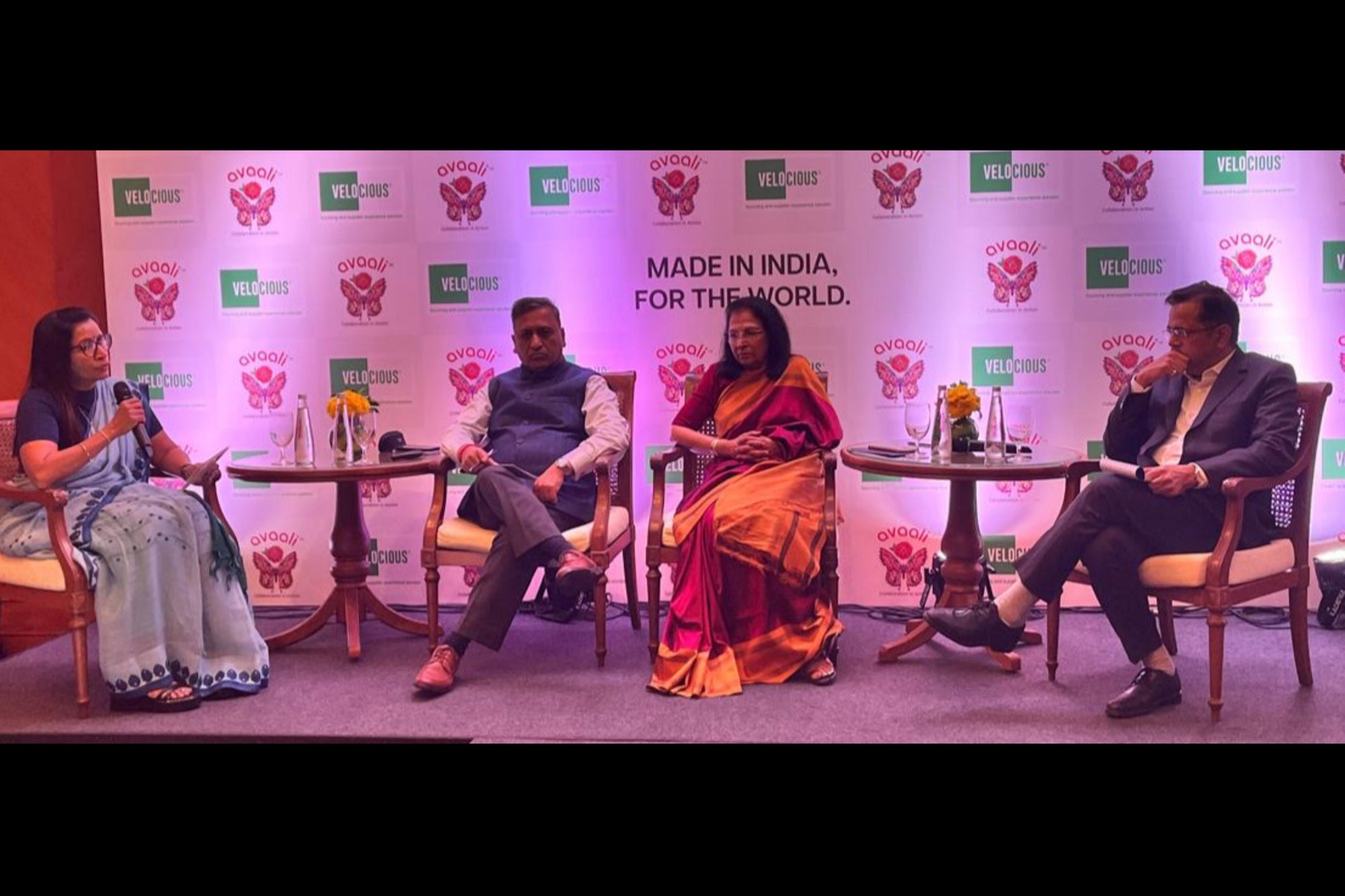India Must Own its Tech Destiny with Indigenous Products and IP: Experts Panellists discussed how Indian enterprises must prioritise homegrown solutions, not just for cost savings but for control, speed, and innovation tailored to our unique needs
You're reading Entrepreneur India, an international franchise of Entrepreneur Media.

India must own its own tech destiny by building indigenous products and owning their intellectual property (IP), experts said at a panel discussion organised by Avaali, a leading technology solutions company specializing in cost optimization and margin improvement for mid- and large-sized enterprises.
The session, led by Srividya Kannan, Founder and CEO of Avaali, brought together a group of C-suite leaders, including Neeraj Agrawal, COO, Tata Projects; Pratima Ram, Independent Director on Corporate Boards; and Dyuti Raj Anshu, Global Procurement Head, Himalaya Wellness.
In her opening address, Srividya Kannan underscored the need for a stronger domestic ecosystem to validate and promote homegrown innovations. "India stands at a pivotal moment in its technological journey. Just as we have proven our mettle in space exploration and IT services, it's time to channel that same ingenuity into owning our tech destiny," she said.
"Indian enterprises must prioritise homegrown solutions, not just for cost savings but for control, speed, and innovation tailored to our unique needs. With strong government support, incentives for 'Make in India' solutions, and a focus on IP and innovation, we can create a self-reliant tech ecosystem that serves India while setting global benchmarks. Global supply chain disruptions and the cost of dependency have made it imperative for India to prioritise homegrown solutions tailored to its unique needs and realities. We need to build a cadre of Indian consulting and technology firms, focus on process automation for resilience, and invest in innovation to create a self-reliant tech ecosystem. Let's not just aim to catch up—let's leap ahead and make 'Made in India, Made for the World' a reality," Kannan added.
The discussion highlighted that while India has demonstrated strong technical talent and the ability to build innovative products, structural and cultural barriers still hinder global recognition and large-scale adoption.
Pratima Ram emphasized the foundational requirements for tech sovereignty, stating, "For India to truly own its tech destiny, we need to build strong computing power and cybersecurity infrastructure. Protecting our digital assets and maintaining data sovereignty are non-negotiable pillars and will determine whether our homegrown solutions can compete globally."
The discussion also touched upon the need for collaboration and learning from global success stories. Neeraj Agrawal stressed the importance of a collaborative ecosystem: "Collaboration with government and among organizations is essential. We need to first 'Make for India' and then export from India. China provides a compelling example of this approach, while Japan offers a fantastic model of how to build technological excellence through deep industry-government partnerships. Without such collaborative mechanisms and a clear domestic-first strategy, our innovations will struggle to achieve scale."
The panel strongly advocated for prioritizing 'Make in India' vendors in qualification criteria for government and public sector technology procurement, with technical evaluation scores strongly favoring domestic players to ensure fair opportunities for growth. This approach would create a crucial foundation for building trust and credibility in homegrown solutions.
Participants emphasized that Indian enterprises must shift their procurement preferences toward indigenous solutions, supported by significant government incentives for private sector adoption. The discussion revealed a consensus that without such incentives, the inertia of relying on established foreign solutions would continue to hamper the growth of domestic alternatives.
A fundamental transformation is needed in how Indian companies approach technology development. The panel stressed the urgency of moving from being primarily service-oriented to developing IP and fostering innovation that can compete globally. This shift requires robust government backing to help Indian companies bring their solutions to market through funding, policy support, and platforms for global exposure.
Another critical theme that emerged was the ROI challenge. Many enterprises are still struggling to achieve meaningful returns on their technology automation investments due to fragmented strategies, limited adoption frameworks, and a lack of domestic consulting ecosystems to guide them. This presents a significant opportunity for India to build its own 'Fab Four' of consulting and advisory firms that can serve as trusted partners, helping organisations extract maximum value from their digital investments while understanding the unique nuances of the Indian market.
Among the key policy recommendations, the panel called for extending the Production Linked Incentive (PLI) scheme, currently focused on hardware manufacturing, to include software solutions. This expansion could significantly accelerate India's software development ecosystem and create a more balanced approach to technological advancement.
The session concluded with a compelling call to action: for India to truly own its tech destiny, industry, government, education segment, and innovators must come together to build platforms that validate homegrown technologies, foster risk capital, and craft powerful global narratives of success.












